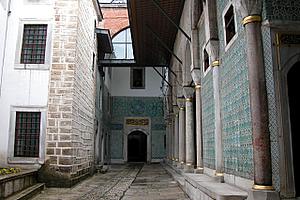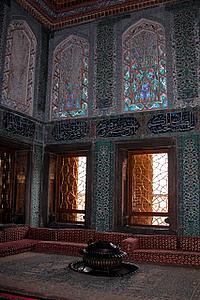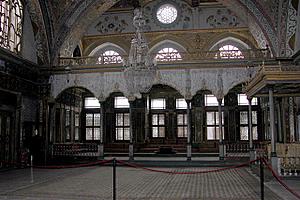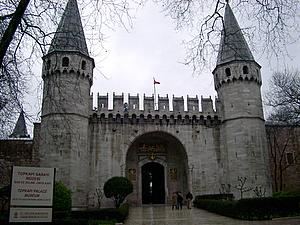Scientists believe that Maldive Islands were first settled by Aryan
immigrants who are thought to have colonised Sri Lanka at the same
time, (around 500 BC). Further migration from South India, as well
as Sri Lanka, occurred. The latest archaeological findings suggest
the islands were inhabited as early as 1500 BC. Around 947 AD,
recorded contact with the outside world began with the first Arab
travellers. As the population increased, the Maldivian people with
their mixed features formed tight-knit island communities.
Historical remains dating back to 400 BC show strong evidence that
Buddhism was widely practised among the people. Islam came to the
Maldives with the Persian and Arab travellers and in 1153 AD
Arabian traveller Abul Barakhat Al-Bar Bari is said to have been
responsible for the conversion to Islam. In
1558, the Portuguese invaded and captured the Maldives. They ruled
the country for 15 years, until Boduthakurufaanu, the national hero
recaptured the Maldives from the Portuguese. He ruled the country
as Sultan Mohamed Thakurufaanu from 1573 – 1583.
The Maldives became a British Protectorate and a dependency of
Ceylon (Sri Lanka) in 1887 and remained so until 26 July 1965 when
they gained full independence. The independent Maldives reverted
from a Sultanate to a Republic on 11th November 1968 and since then
the country has remained a fully independent republic.
The first resort, Kurumba Village was developed in 1972, on an
uninhabited island near the capital, Malé. The resort,
had accommodation for about 60 guests. The second resort was
Bandos, with about 280 beds. The services in the two resorts were
quite basic compared to that of others in the region. The food was
mainly local and the transportation quite slow. It was also a time
when air travel to the Maldives was only available on
Air Ceylon which operated a small
Avero aircraft. This plane carried only 48 passengers and took
two hours to reach Malé from Colombo. Despite
this, over a thousand tourists came to the Maldives in 1972. In
2003 the Maldives consists of more than 80 resorts, and over
500,000 visitors from all over the world. Italian visitors account
for approximately 25% of all visitors, followed by the UK at 17%,
Germany at 14% and Japan at 9% and the average stay is 8.5 nights.
The Maldives hold the record for being the flattest country in the
world, with a maximum altitude of only 2.3 metres. Although there
have been reports of rising sea levels threatening the islands, the
sea level has actually lowered in recent decades. There are said to
be 199 inhabited islands and 993 uninhabited islands.
The December tsunami reached the Maldives at approximately 9.20am
on 26 December 2004, sending waves up to five metres high over the
1192 islands. The disaster is believed to have caused damage to 69
of the 199 inhabited islands and 14 islands are said to be
completely devastated and had to be evacuated. In total, some
20,500 islanders were displaced from their homes and 83 people were
killed, including three tourists. A further 25 people are still
missing and presumed lost in the disaster.
Even before the disaster, environmentalists were concerned about
the risk to the islands from rising sea levels. The most serious
damage was to the islands along the east coast of the group,
particularly in North Malé Atoll and South Malé Atoll, but the
capital, Malé, and the international airport on Hulhule island
experienced only minor flooding. The tsunami also caused
significant damage in the far south of the Maldives, particularly
to Vilufushi in the Thaa Atoll and Kolhufushi in the Meemu Atoll.
In the north, Kandholhudhoo island in the Raa Atoll was completely
destroyed, displacing 3,000 islanders from their homes. The island
has since been abandoned. Cartographers
are planning to redraw the maps of the islands due to alterations
by the tsunami.
Despite the massive damage to homes, schools, harbour facilities,
telephone and electricity suppliers and general infrastructure, the
loss of life was thankfully comparatively small, especially when
compared with Indonesia, Sri Lanka, India and Thailand. Still,
estimates suggest that around 7% of the population has been left
homeless by the disaster and the overall cost of damage is
estimated at US$470 million, or 62% of the islands' GDP. The
government has reported that the impact of the tsunami will set
back development in the Maldives by two decades.
Despite this, the emergency relief effort has been extremely
successful, though some would say that it has been challenged to
the areas most frequented by tourists. As of March, 71 of the 87
resorts in the Maldives were open as normal and tourists could
visit Malé and other areas that escaped major damage without
problems. However, 16 resorts remain closed as a result of the
disaster – for an update on the 16 hotels that are closed, see:
www.visitmaldives.com.mv
No prior visa arrangements are required, but some requirements must
be fulfilled to obtain a 30 days tourist visa on arrival: a visitor
must have a valid travel documents and properly completed
embarkation/disembarkation cards which usually provided at during
the inward flight. In addition, visitors must also have a return
air ticket or at least US$ 50.00 per intended day of stay in
Maldives. Any amount of Foreign currency can be brought in without
declaring and can be taken out without any restriction. Some items
are forbidden to be imported to the country, including firearms and
explosives, pornography of any kind, including what would be
considered “acceptable erotica” in all western (and most
eastern) societies, pork and all products containing pork, narcotic
drugs, poisons and hazardous, irritable or industrial chemicals and
alcohol. Alcoholic items purchased on the trip will be held in
Customs bond for collection upon departure.





 We are sorry to say that Mac is not very well, but he is still
e-mailing strong and recently sent the Beetle a collection of
travel reminiscences about Japan and shopping in Hong Kong.
We are sorry to say that Mac is not very well, but he is still
e-mailing strong and recently sent the Beetle a collection of
travel reminiscences about Japan and shopping in Hong Kong.